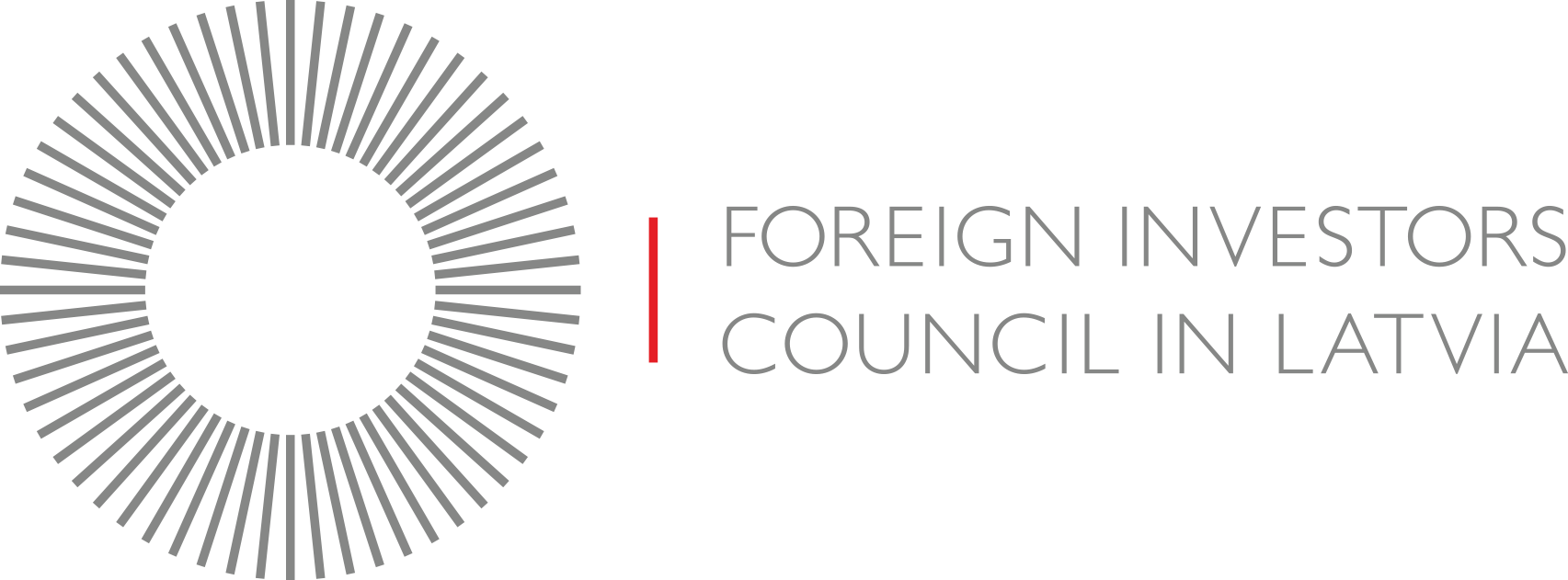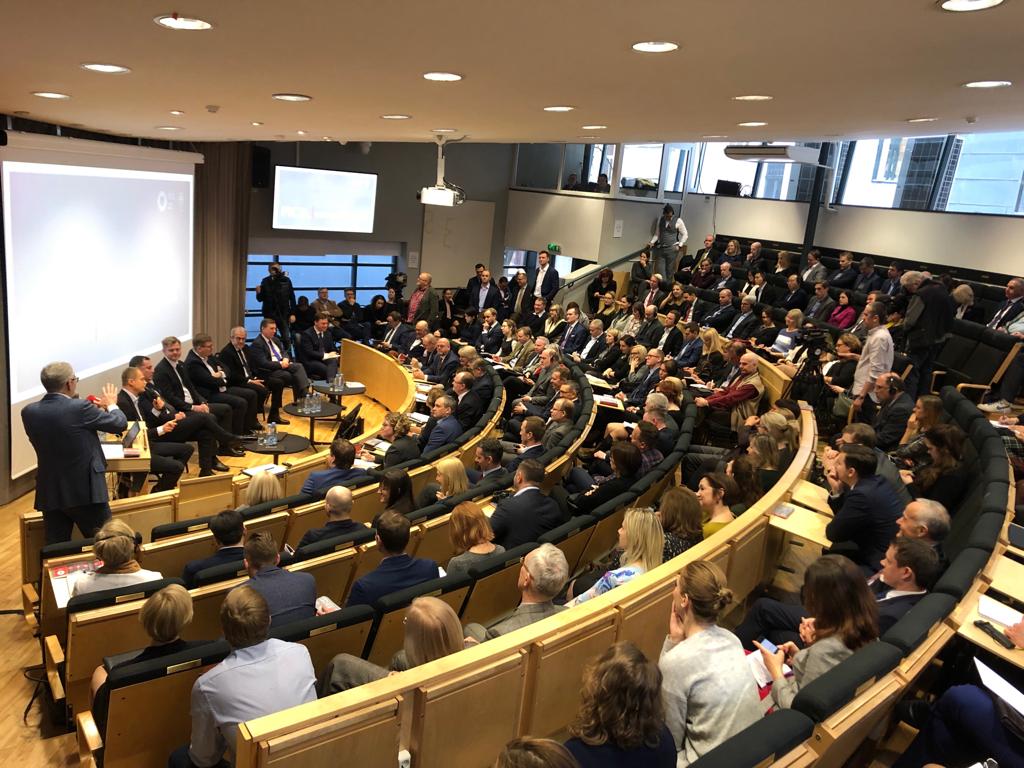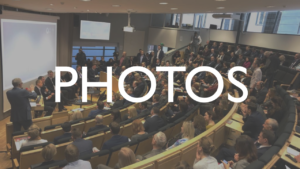FICIL Sentiment Index in the year 2018 – still average, concerns about the decrease in the FDI inflow
Riga, 9/01/2019
The results of the FICIL Sentiment Index 2018 study suggest that the investment attractiveness of Latvia, according to the viewpoints of foreign investors, has remained the same as compared to the situation one year ago – 2,5 out of 5.[1] Furthermore, the investors’ assessment with regards to the policy-makers’ efforts to improve the investment climate in Latvia over the past year remain at the same level as in the 2017 study. Namely, in both the 2017 and 2018 studies, respondents graded the work of policy-makers as almost ‘average’ or 2.9.[2]
In terms of further investments, of the interviewed 40 investors, as many as 22 answered with ‘yes’, meaning they will increase investments in Latvia, 14 said ‘no’ and 4 answered that ‘it depends on the circumstances’ or that they have not yet decided. However, there are concerns that in the 9 months of 2018 the amount of direct foreign investment in Latvia has halved (according to the Ministry of Economics – EUR 365 million in the 9 months of 2018).
(In 2017, 24 of the 42 investors interviewed answered with ‘yes’, 14 said ‘no’ and 7 said that they have not yet decided).
The main problems in the business environment as identified in the research:
- Acute problems: corruption in the public sector, availability and quality of labour, efficiency of the public sector.
- Chronic problems: uncertainty, shadow economy, education system.
- Partly treated problems: demographic situation, healthcare system, tax reform, unethical or illegal behaviour of entrepreneurs, unfair competition.
- New negative trends: the situation in the financial sector, the consequences and the problems of the reputation of Latvia, the role of Riga in the development of Latvia – insufficient capacity to compete with other cities in the region.
For the fourth year in a row, FICIL carried out the FICIL Sentiment Index research together with Dr Arnis Sauka from SSE Riga. 40 companies were interviewed – these companies (including their subsidiaries) contribute to 9% of Latvia’s total tax revenue, 18% of total profit and employ 4% of the total workforce out of all companies above a 145000 EUR turnover and 50% foreign capital (data from Firmas.lv). Altogether, the number of companies in which foreign capital accounts for at least 50% and whose turnover exceeds EUR 145 000 represents one fifth of all Latvian companies, paying 48% of all taxes in the country, as well as employing 27% of workers.
Julia Sundberg, FICIL Chairperson of the Board: “Although at the moment investors still feel relatively good in Latvia because of the economic upturn, years of unresolved issues like the demographic downturn, availability and quality of workforce, corruption, shadow economy and others not only pose a risk that no new investment will enter Latvia, but also that existing investment might leave. This is why FICIL hopes this report can be used as a constructive tool for Latvian policy makers to improve the overall competitiveness of Latvia’s business environment.”
Arnis Sauka, professor at SSE Riga: “By analysing responses of the investors over the past four years and seeing the dynamic data, it can be concluded that some problems have been partly treated and are not as painful anymore; some problems have become chronic and everyone has learned to live with them; while some have just become acute and no actions can cost a lot not only to investors but to the general economy of the country.”
While investors point out that the situation has improved slightly during 2018 in regards to the tax system, demography and health care system, and progress in these areas is achieved at least “partly”, the situation with the availability of labour, on the other hand, has become more critical compared to the previous year. The majority of foreign investors interviewed have also expressed dissatisfaction with no improvements regarding uncertainty. Also, while the investors’ views on the quality of the legal system and business legislation remain unsatisfactory, the progress in these areas, however, has slightly improved compared to 2017.
Recommendations for dealing with key challenges
In the FICIL Sentiment Index 2018 report, investors also gave several recommendations on how to address some of the most acute issues. In regards to the problems in the labour market, the following recommendations were stated: promoting regional mobility, housing development, improving the transport system all over Latvia and strengthening regional centres. Investors also see the need to open borders for controlled migration and draw attention to the segmentation and inequality in the education sector, which is notably dangerous for such a small country.
In regards to dealing with the problem of shadow economy, investors draw attention to the fact that there is a sense that corruption and shadow economy is not punished enough in Latvia. Moreover, investors point out that Latvia cannot fight corruption and shadow economy unless all the ministries are cooperating and are on the same page.
The best and worst decisions or policy initiatives of the Latvian government
In this year’s research, the investors were asked to identify the best and worst decisions or policy initiatives that have been introduced by the Latvian government over the last 5 years.
According to investors, the “best decisions” or policy initiatives include taxes and tax reform, as well as addressing the situation of the mandatory procurement component (OIK). Yet, it should be noted that part of the investors are pleased to see some action towards the issues, not necessarily to how they are being addressed. Additionally, a large number of investors stress that the consequences of the tax reform may only be assessed later on. Similarly evaluated are such issues as the progress made to fight the shadow economy, including anti-money laundering and anti-money laundering activities, as well as progress in the area of insolvency process administration. Positively assessed decisions are also related to Latvia’s participation in international organizations and accession to the euro zone, policy initiatives to improve the education system; digitalisation; involvement in major infrastructure projects such as Rail Baltica.
The “worst decisions” or policy initiatives mostly highlighted by foreign investors are decisions that have led to the current situation in the financial sector. Some of the “best” decisions were also evaluated as the “worst” by just as many other investors, namely, the tax reform, electricity mandatory procurement components (OIK), shadow economy-related measures and measures taken to prevent money laundering and corruption. Other negative decisions or policy initiatives, according to foreign investors, include the [in]ability of the government to set priorities and communicate; activities related to labour and demography: migration, immigration, residence permits and environmental regulation, waste management. Investors are also dissatisfied with various activities and policy initiatives related to the construction sector, lack of regional reform and regulation of the taxi industry, decisions aimed at improving the investment climate and health care system, decisions on cash registers.
Presentation of the FICIL Sentiment Index 2018 report to the wider audience was followed by a discussion “How should the investment climate in Latvia be improved?” between investors and the representatives of the 13th Saeima’s political parties. The discussion was moderated by journalist Jānis Domburs.
The FICIL Sentiment Index was established in 2015 by the Foreign Investors’ Council in Latvia (FICIL), in cooperation with the Stockholm School of Economics in Riga (SSE Riga) professor Dr. Arnis Sauka. The main objective of the index is to promote evidence-based policy decisions that would contribute to a favourable investment climate in Latvia.
The production of the FICIL Sentiment Index 2018 is generously supported by the British
Embassy Riga and the U.S. Embassy in Latvia.
This year, FICIL celebrates its 20-year anniversary. FICIL is determined and committed to continue to work hard to foster more evidence-based policy decisions in promoting a favourable investment climate in Latvia.






